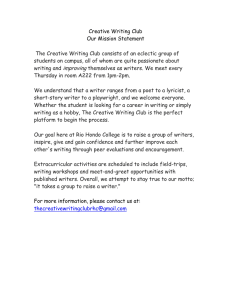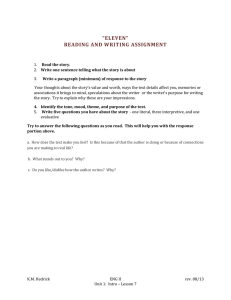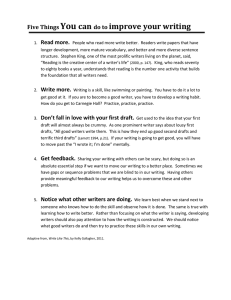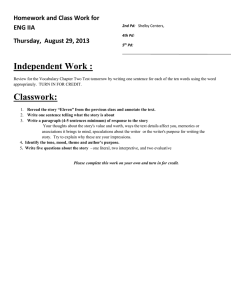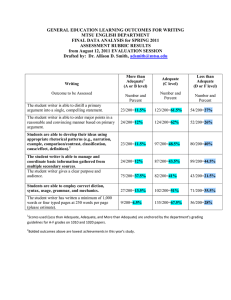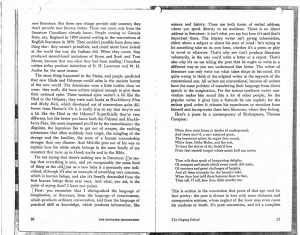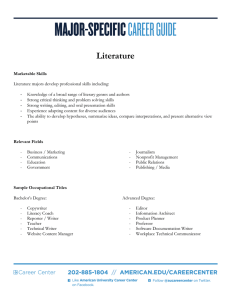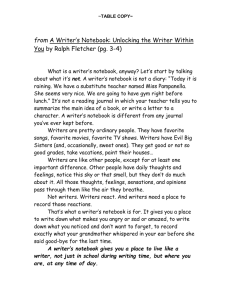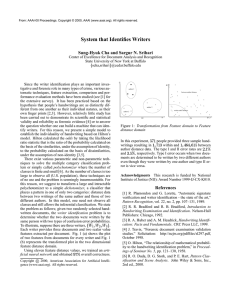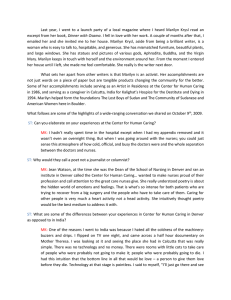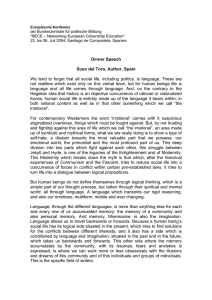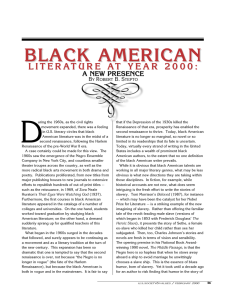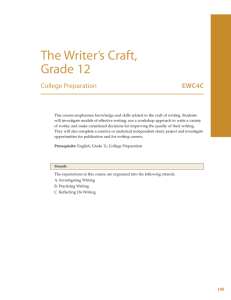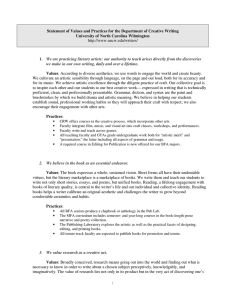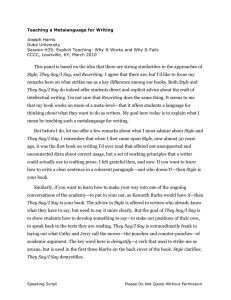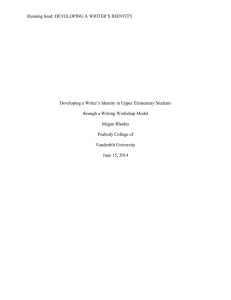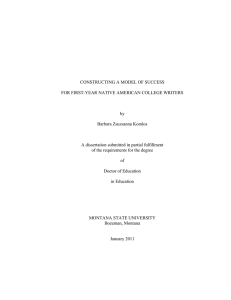Beating Writer’s Block
advertisement
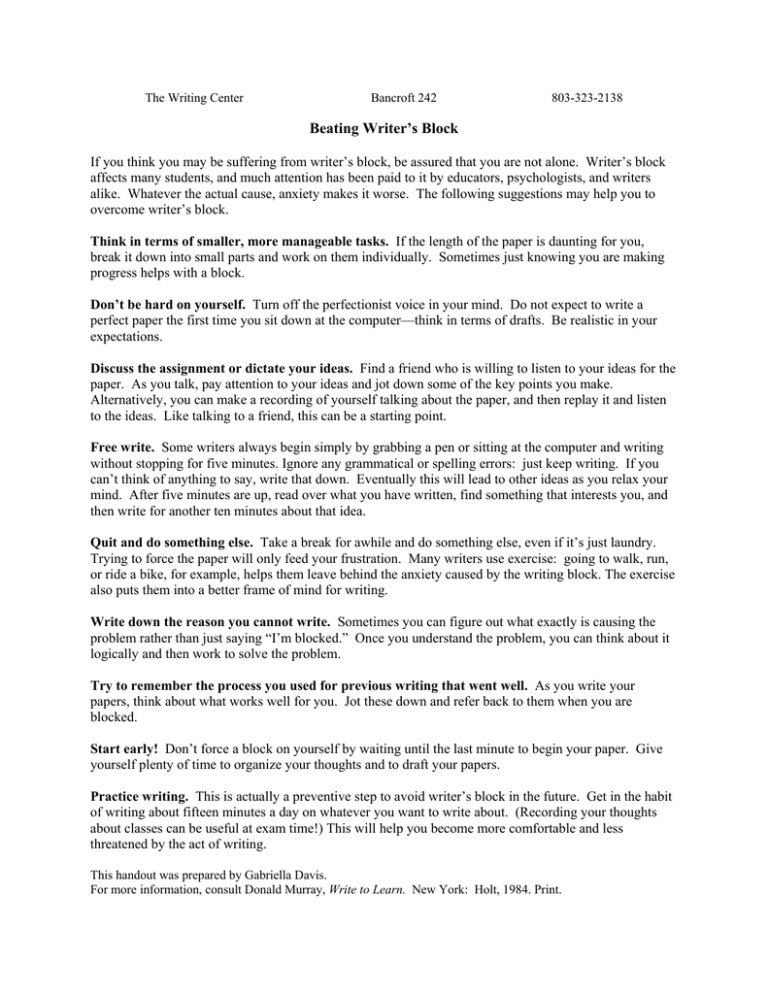
The Writing Center Bancroft 242 803-323-2138 Beating Writer’s Block If you think you may be suffering from writer’s block, be assured that you are not alone. Writer’s block affects many students, and much attention has been paid to it by educators, psychologists, and writers alike. Whatever the actual cause, anxiety makes it worse. The following suggestions may help you to overcome writer’s block. Think in terms of smaller, more manageable tasks. If the length of the paper is daunting for you, break it down into small parts and work on them individually. Sometimes just knowing you are making progress helps with a block. Don’t be hard on yourself. Turn off the perfectionist voice in your mind. Do not expect to write a perfect paper the first time you sit down at the computer—think in terms of drafts. Be realistic in your expectations. Discuss the assignment or dictate your ideas. Find a friend who is willing to listen to your ideas for the paper. As you talk, pay attention to your ideas and jot down some of the key points you make. Alternatively, you can make a recording of yourself talking about the paper, and then replay it and listen to the ideas. Like talking to a friend, this can be a starting point. Free write. Some writers always begin simply by grabbing a pen or sitting at the computer and writing without stopping for five minutes. Ignore any grammatical or spelling errors: just keep writing. If you can’t think of anything to say, write that down. Eventually this will lead to other ideas as you relax your mind. After five minutes are up, read over what you have written, find something that interests you, and then write for another ten minutes about that idea. Quit and do something else. Take a break for awhile and do something else, even if it’s just laundry. Trying to force the paper will only feed your frustration. Many writers use exercise: going to walk, run, or ride a bike, for example, helps them leave behind the anxiety caused by the writing block. The exercise also puts them into a better frame of mind for writing. Write down the reason you cannot write. Sometimes you can figure out what exactly is causing the problem rather than just saying “I’m blocked.” Once you understand the problem, you can think about it logically and then work to solve the problem. Try to remember the process you used for previous writing that went well. As you write your papers, think about what works well for you. Jot these down and refer back to them when you are blocked. Start early! Don’t force a block on yourself by waiting until the last minute to begin your paper. Give yourself plenty of time to organize your thoughts and to draft your papers. Practice writing. This is actually a preventive step to avoid writer’s block in the future. Get in the habit of writing about fifteen minutes a day on whatever you want to write about. (Recording your thoughts about classes can be useful at exam time!) This will help you become more comfortable and less threatened by the act of writing. This handout was prepared by Gabriella Davis. For more information, consult Donald Murray, Write to Learn. New York: Holt, 1984. Print.
